As we turned to exit onto I-35 via a wavy, construction laden road, we left behind the cities which bear little resemblance despite their collective name claiming they do. We passed through the myriad suburbs until the Twin Cities faded into farm fields, forests, and, of course, lakes. Our first stop came quick, but with a less-than-two-year-old and pregnant wife both needing to stretch their legs, stops were bound to come often.
This first stop brought us to the first McDonald’s of the trip. But, this stop was different from all the rest that followed. First, it was not on its own. Rather, it was nestled in a food court within the travel center we stopped at. Second, we had been there before, many times. It was the halfway point between our old home and current one, so it was a great checkpoint for snacks and driver changes.
At that early hour, it is the only restaurant open. Fellow travelers were enjoying—if they actually could—their biscuit sandwiches, flattened fried potatoes, and molten coffee. We skipped the hot breakfast this time and settled for doughnuts instead. Packed in our car was enough food for two of these trips, but the sugary rings entice us regardless.
Continuing south, the lakes that make this state famous seemed to disappear at once to give way to the farms that distinguish the next. Cutting east, the glacier-flattened fields of central Iowa gave way to the rolling hills that foreshadow the lands untouched by the ancient ice sheets. But before we were able to bear witness to the most eternal beauty this far north, we were southbound again toward the city we once called home.
The city we left behind a year ago surprised us with the opening ceremony for the hospital we saw break ground, but feared we would never see complete. The air was warmer here, the grass a bit greener, but the vestiges of winter remained in the leafless trees and the winds that made the coolness in the shadows much starker.
We weren't able to stay long, but long enough to remember what we had left behind and forestall our leaving. New restaurants had popped up in the year hence, but we remembered the old well. As we continued on our trek, eating a quick snack before we left, we reminisced on the strange things we missed. Things like being able to buy alcohol at gas stations despite our not drinking, or the world's largest wooden nickel we drove past weekly, though never stopped at. We left this city a year ago, but only physically.
Driving on, we began to enter the unknown, onto roads I had never driven on before. The hills lining the Great River joined us again. The trees displayed more signs of bloom, and we approached the state whose name marks the compromise that led us to our great calamity. As we crossed the border into Missouri, another stop was needed; The toys, books, and movies had all lost their luster to the toddler in the back.
The second McDonald’s had the new corporate style that people love to hate. Outside, there seemed to be a negotiation, or the making of a plan of some sort, among the occupants of three separate vehicles. Inside, we ordered two burgers—which were overcooked—and fries—which were saltless. Two booths down was a dad and two sons playing Sorry. The game transitioned from a dad teaching his sons—around four and six years old—how to play to a dad playing the game by himself frustrated as his kids sit befuddled.
Our final stop the first day was in the city that acts as the gateway to the west. This foreign city—no matter how similar to the one we started from—brought with it new anxieties. Areas we would feel comfortable walking through in the dark back home felt like Skid Row there. No points of reference were available except the state of the houses and cars, and the intense stares as our northern license plate acted as a siren as we pass the locals.
Perhaps I had grown weary of travel as I have aged, or perhaps the little one behind me looking out the window none the wiser made me unwilling to accept the risks I once did. Regardless, the hotel gave us more anxiety than relaxation. Our eyes were drawn and glued to every stain and scuff. We felt tricked by the name emblazoned on the sign rising high outside our window.
I knew I had stayed in worse, so I understood the absurdity I now feel when looking back, but that didn’t make the night any easier.
We woke before the sun had even thought to rise. Another day in the car from sunrise to sunset awaits us. But we knew that the final destination, a house on the newly renamed gulf, also awaited us with the setting sun. We packed our small overnight mess under the cover of darkness in the vain hope that our sleeping daughter would remain that way until we were on the road, knowing full well she wouldn’t.
We risked one last stop for gas, passing on a station with a man walking himself in a wheelchair, and ending up at another with a man swaying in front of the locked McDonald’s doors. My anxiety peaked as I tried to understand what the clearly drug addled man was saying to me. My low tolerance for risk did not allow me to negate the safety the car offered my family to find food for him. I regretted it after we left.
We passed into the heart of the city, the shadow of the great parabola was only visible by the flashing red light atop its peak. As the road unfurled before us, we vowed to never return to this city. This was an overreaction, but our experience made any attraction, even the Arch, far less…attractive.
As we left the city lights, the sun replaced them, revealing the green of the trees that seemed to have snuck up on us. The trees in full bloom reminded us what we’d be missing, at least for another couple more months, when we returned home. Before long, another stop was needed to stretch our legs.
Our options were sparse, and the signs indicating them were few, but we’d come to understand that there was always a safe choice: McDonald’s. We got gas, brushed our teeth, and headed under the golden arches sign.
The sun had fully risen, and breakfast was the only thing on the menu. Two men sat apart from each other drinking their coffee. A third man followed us in, and was hailed by the greetings of the others. “Didn't think I'd see you in here this early,” the man sitting at a table by the window said.
We ordered our meal and traded off in the bathroom. As I sat back down, the third man had sat down at the table to enjoy his McCafe with company. The other man asked our daughter's age and wished us well before returning to reading something on his phone.
We didn’t stay long, nor did I hear the conversation of the two men, but the distance from the solo man begged questions. Before we got any answers—if they were ever ours to get—the road called us back.
Our surroundings melted between farms and forests. Hills greeted us every once in a while to hint at the mountains we knew laid to the east, but would continuously elude us. The green fully overtook the brown on the trees and the ground by this point.
This verdant mixture, dark and light, stood in stark relief against the bright blue of the clear skies. The sights mesmerized and time melted away, and in my daze my wife reminded me that a stop was needed. On another lonely road off the highway, we found our usual oasis: McDonald’s.
Inside the accents were thick, theirs to us, and surely ours to them. I felt out of place as I asked my daughter if she wanted a french fry to no avail. This wasn’t the anxiety like before, but I knew I couldn’t blend in like I hoped to while traveling. I didn’t want to be seen as the tourist, the type to have no qualms with interrupting the lives of the locals.
However, I realized the absurdity of that thought crossing my mind in the largest restaurant chain in the world; in the place that brings all of America together. The conversations happening among the tables were like that of everywhere else: asking about new jobs, complaining about bills, and stories of family.
It is there, in that small Tennessee town, that I began to understand the beauty of that restaurant. I began to wonder what McDonald’s tells us about America. But the thought was fleeting as we were eager to begin the final stint.
As we had already left behind the last interstate highway hours before, the cities we passed through got smaller and more remote. As we crossed into the state that bears the river’s name, we were bracketed by thick green walls of trees and bushes. The hints of houses, large and small, brand new and ramshackle, whispered through the forests of Mississippi. The churches in the rare clearings had converted completely to Baptist.
Eventually, the road shrank from four lanes to two. The tree line moved in closer until my wife could almost touch the branches from her seat. The forest began to loom over the road, threatening to take over completely. We were lucky to be driving while the sun was high in the sky. I couldn’t imagine the demons that lay hidden in shadows when the void overtakes the forest at night.
The only respite was the occasional gravel parking lot of a two pump station. It was at this moment that I wished I could see those french fries bent into an M glowing from behind the trees saying, “I’m here if you need a break.”
Lord knows I would have taken it.
McDonald’s, for all of its faults and virtues, embodies America. It is the steady and stable place for families, shift workers, men of solitude or company, passers-by, and all those in between.
The highest highs do not separate far from the lowest lows at these restaurants. There has been a lot of consternation about the beige-ification of the chain. They look far more like a brand-new dentist office than a hamburger shop. But, that only point more clearly to this goal of stability.
For us, a new family, McDonald’s is the only place we can trust for a cheap meal, a clean (ish) bathroom, and a safe place for our daughter to run around no matter where we are in this country. So on a long trip through several states, we know what we’re getting into whenever we walk through those doors.
That's what they represent: stability. It’s not perfect, and not really great in many ways, but remains steadfast through it all. And, because of the stability of the place and the food, it is the perfect place for every type of person, every type of conversation.
But there is a second aspect of McDonald’s that I realize as I look back on the trip now. McDonald’s is not just a mirror, it holds one up to the country. It reflects the variety in this country as much as the stability.
The new version of the restaurant is not ubiquitous. There are many older ones with the style from the nineties, some in big cities that are three-stories tall. Some are destitute, heading for closure.
Even with the update, there are still messy parts. The bathrooms may be gross. The soda machine may be flat. The ice cream machine is likely perpetually broken. But that’s part of the charm. We all know the faults, and yet we return.
Theones we visited represented the average. The places that can be found throughout this nation. If one was to wake up in one of these McDonald’s it would be hard to place herself quickly. But, that’s not true of them all.
In both of these aspects, America is the same. We are a place of general stability, but also of great variety.
America is a messy place, historically. We’ve gone through downturns and upswings, breakdowns and refreshes. But we’ve remained stable through it all. We are the world’s oldest living democracy. Through all of it, we’re still here. No matter the struggle, even divisions only pacified by war, we come together as a single union.
The same is true of setting. There are many places that are easy to pick out. The landscapes, cities, communities, and monuments come in every shape, size, and state of decay. But throughout much of this country, many of the small towns and small cities look, act, and feel the same. The only difference one would notice is that of the people.
But this stems from the people and the ideas we hold.
We’re a nation of traditionalists and progressives. Newcomers and descendants. Every nation is represented somewhere. Every profession, every creed. Every walk of life, every outcome. Every conversation, from droll to mind-expanding. It’s all here. Always.
If one were to want to change McDonald’s, he wouldn’t turn it into a taco restaurant. He would try to rekindle the passion that drove the original brothers to make burgers, fries, and shakes as quickly and cheaply as possible. It would remain a place for families of all walks to get good food.
And he would be forced to remember that it is not the new menu items, or special toys that make this place so special. It is the burgers, and the fries, and the shakes.
To those who wish to change America beyond recognition, tear it from its grounding framework, I ask, why? It’s not a perfect place, nowhere is. There have missteps and concerning trends. But despite that, this country has given us as Americans, and the world—though many may quibble with this—stability.
As the semiquincentennial approaches, we need to remember the founding and rekindle the similarities we share as Americans. We don't need to reshape the foundation to build ourselves back up. We just need to return to our roots and remember why we're here in the first place.
It is not the land or the government that's important. It is the ideas and the people that make this place special.
Although, I must say, this place is pretty gorgeous as well.
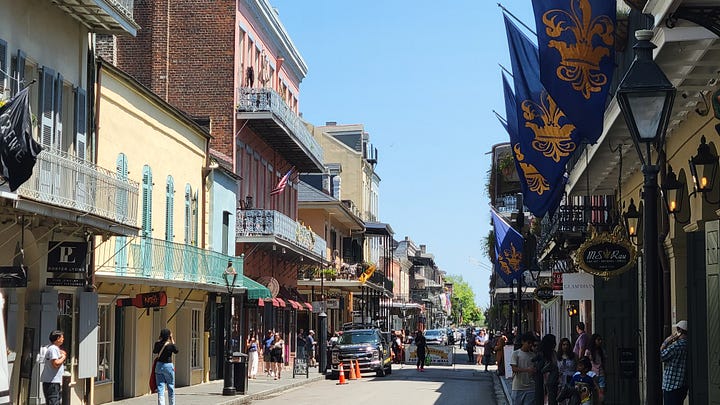
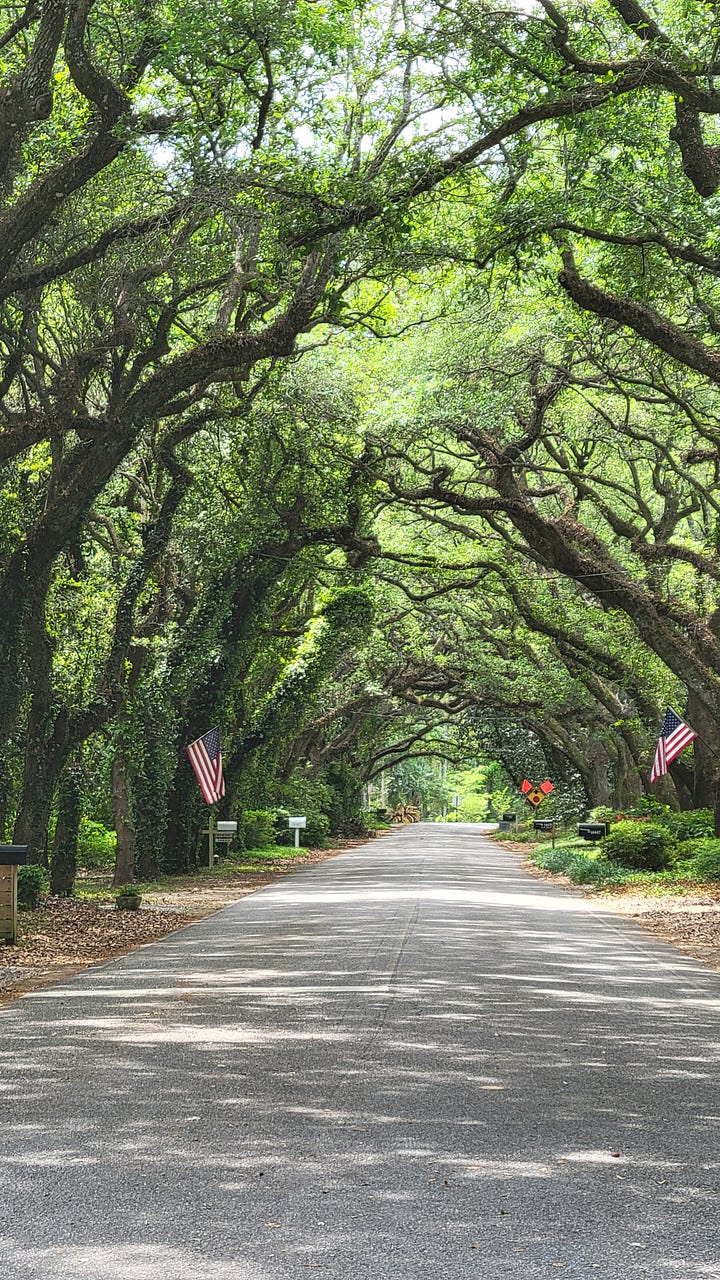
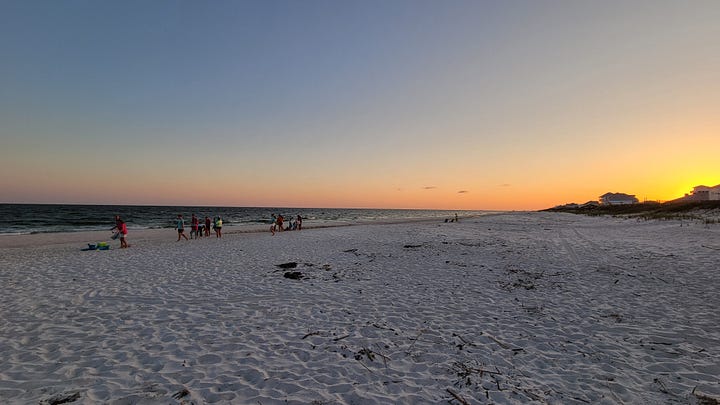
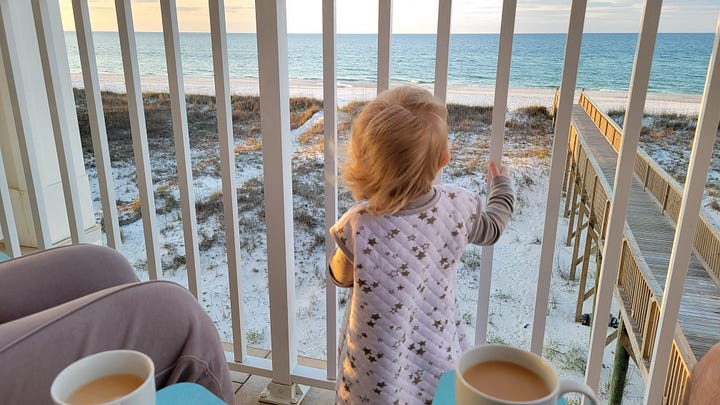


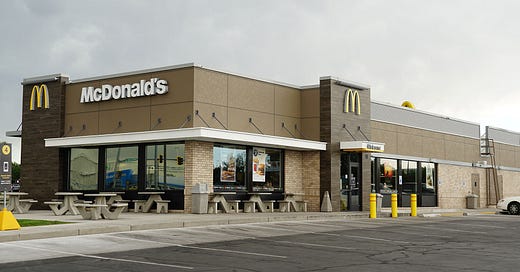


LOVED this article Scott. Your observations about our differences and our sameness was spot on. I loved your nostalgia for a place where you used to live. I feel the same way for the city where I married and started my family. I hope that as our country approaches its 250th anniversary that we will remember that it’s our faith in God and our Constitution that has allowed a very diverse group of people with different opinions, beliefs and worldviews to live together in peace. When we have strong differences we settle them through our elected representatives and through the ballot box. But above all the Constitution guarantees each individual their rights.